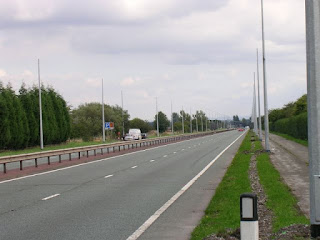A man who was thrown off a tram for boarding it illegally was convicted of manslaughter after he punched a passenger who remonstrated with him, causing him to fall backwards and die from his injuries.
 On 10th March 1945 at 1120pm Thomas McCulloch jumped onto the top deck of a tram in Church Street. The tram, which was heading to Prescot, was already full and had the chain across the platform, leading to the conductress telling him to get off at St Johns Market.
On 10th March 1945 at 1120pm Thomas McCulloch jumped onto the top deck of a tram in Church Street. The tram, which was heading to Prescot, was already full and had the chain across the platform, leading to the conductress telling him to get off at St Johns Market.
As 32 year old ex soldier McCulloch alighted he said some words to the conductress and was mildly rebuked by Arthur Hope, who was waiting in a queue. McCulloch responded by punching Hope in the face and as he fell to the ground he struck his head on the pavement. Others in the queue tried to restrain McCulloch but he ran off although he was soon apprehended by two military policemen.
Hope, who was a 35 year old insurance agent, died from a fractured skull three days later, leading to McCulloch being charged with manslaughter. A motor driver who lived in Edinburgh Road, Kensington, he appeared at the Liverpool assizes on 23rd April. Hope's father said his son was a mild mannered man who had once been in the police.
McCulloch said in evidence that he had been discharged from the army on medical grounds the previous September. He claimed that he had had four or five pints of beer that night and was heading back to his home. He then said that after leaving the tramcar Hope told him he should be in the army fighting the war and threw a punch, meaning his actions were in self defence.
The jury found McCulloch guilty and Mr Justice Lewis told him only his medical condition and army service had saved him from a long period of penal servitude. Describing Hope as 'a perfectly innocent and unoffending citizen' he then imposed a sentence of eighteen months imprisonment with hard labour.






























